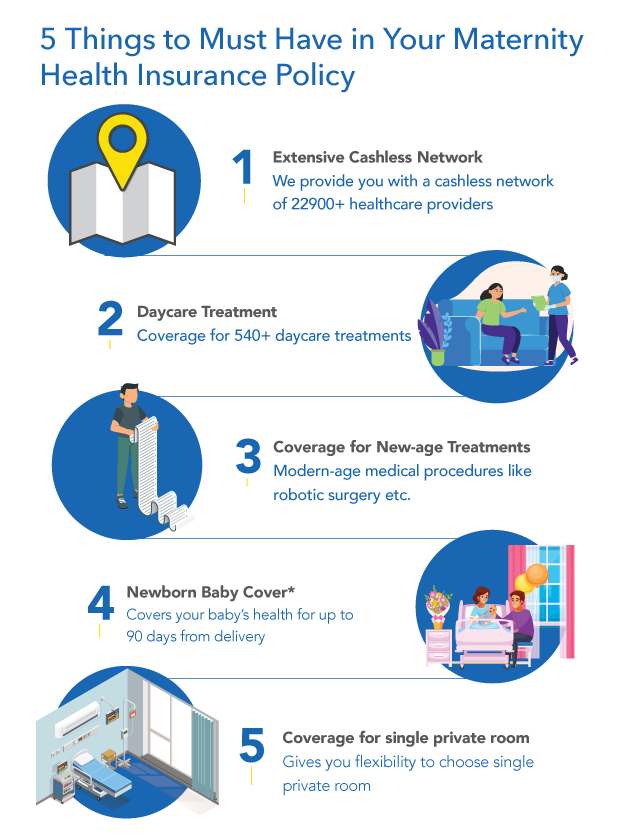
Pregnancy Health Insurance: A Comprehensive Guide
Introduction
Pregnancy is a transformative journey that brings immense joy and responsibility. Ensuring the health and well-being of both the mother and the unborn child is paramount. Pregnancy health insurance plays a crucial role in providing financial protection and access to essential healthcare services during this critical period. This comprehensive guide will delve into the intricacies of pregnancy health insurance, empowering expectant parents with the knowledge they need to make informed decisions.
Understanding Pregnancy Health Insurance
Pregnancy health insurance is a type of health insurance that specifically covers expenses related to pregnancy, childbirth, and postpartum care. It provides coverage for a wide range of services, including:
- Prenatal care: Regular checkups, ultrasounds, and screenings
- Labor and delivery: Hospitalization, anesthesia, and surgical procedures
- Postpartum care: Recovery, breastfeeding support, and newborn care
Types of Pregnancy Health Insurance
There are two main types of pregnancy health insurance:
- Employer-sponsored insurance: Many employers offer pregnancy health insurance as part of their employee benefits package. This type of insurance is typically more affordable than individual plans.
- Individual insurance: Individuals who do not have employer-sponsored insurance can purchase individual pregnancy health insurance plans from private insurers. These plans may be more expensive but offer greater flexibility in terms of coverage and providers.
Coverage and Benefits
The coverage and benefits of pregnancy health insurance plans vary depending on the insurer and the plan selected. However, most plans typically cover the following:
- Prenatal care: Routine checkups, blood tests, ultrasounds, and screenings
- Labor and delivery: Hospitalization, anesthesia, and surgical procedures, including cesarean sections
- Postpartum care: Recovery, breastfeeding support, and newborn care
- Complications: Coverage for complications during pregnancy, labor, and delivery
- Newborn care: Coverage for the newborn’s hospital stay, vaccinations, and other essential care
Choosing a Pregnancy Health Insurance Plan
When selecting a pregnancy health insurance plan, it is important to consider the following factors:
- Coverage: Ensure that the plan covers all the services you need, including prenatal care, labor and delivery, and postpartum care.
- Cost: Compare the premiums, deductibles, and copayments of different plans to find the most affordable option.
- Provider network: Choose a plan that includes providers in your area and that you are comfortable with.
- Flexibility: Consider plans that offer flexibility in terms of coverage and providers.
- Reputation: Research the insurer’s reputation and customer satisfaction ratings.
Enrollment and Eligibility
Enrollment in pregnancy health insurance typically occurs during the open enrollment period, which runs from November 1st to January 15th each year. However, some states offer special enrollment periods for pregnant women.
Eligibility for pregnancy health insurance varies depending on the insurer and the plan selected. Most plans require that the woman be pregnant at the time of enrollment.
Importance of Pregnancy Health Insurance
Pregnancy health insurance is essential for several reasons:
- Financial protection: It helps cover the high costs associated with pregnancy, labor, and delivery.
- Access to quality care: It ensures access to prenatal care, labor and delivery services, and postpartum care from qualified healthcare providers.
- Peace of mind: It provides peace of mind knowing that the financial burden of pregnancy and childbirth is covered.
Additional Considerations
In addition to pregnancy health insurance, there are other factors to consider when planning for the financial aspects of pregnancy:
- Health savings account (HSA): An HSA is a tax-advantaged savings account that can be used to pay for qualified medical expenses, including pregnancy-related expenses.
- Flexible spending account (FSA): An FSA is a tax-advantaged account that can be used to pay for certain healthcare expenses, including pregnancy-related expenses.
- Government assistance programs: Pregnant women who meet certain income requirements may qualify for government assistance programs such as Medicaid and the Children’s Health Insurance Program (CHIP).
Conclusion
Pregnancy health insurance is a valuable tool that provides financial protection and access to essential healthcare services during pregnancy, labor, and delivery. By understanding the different types of plans available, the coverage and benefits they offer, and the factors to consider when choosing a plan, expectant parents can make informed decisions that ensure the health and well-being of both the mother and the unborn child.